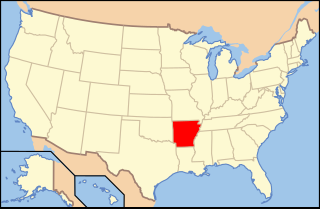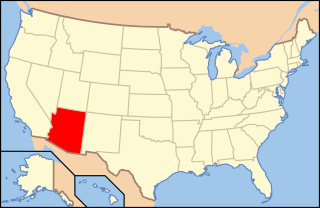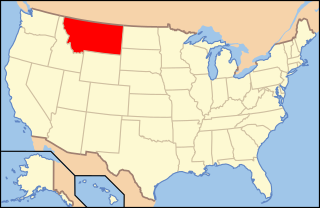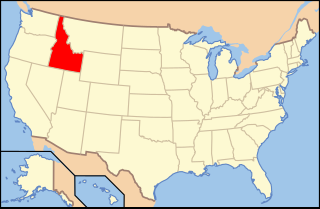
The rights of lesbian, gay, bisexual, transgender, and queer (LGBTQ) people in the United States are among the most advanced in the world, with public opinion and jurisprudence changing significantly since the late 1980s.

The 'Massachusetts Transgender Political Coalition (MTPC) is an organization dedicated to ending discrimination on the basis of gender identity and gender expression. The MTPC educates the public, lobbies state and local government, and encourages political activism.
MassResistance is an American organization that promotes anti-LGBT and socially conservative positions. The group is designated an anti-LGBT hate group by the Southern Poverty Law Center, in part for claims linking LGBT people with pedophilia and zoophilia, and claims that suicide prevention programs aimed at gay youth were created by homosexual activists to normalize and "lure" children into homosexuality.
In the United States, the rights of transgender people vary considerably by jurisdiction. In recent decades, there has been an expansion of federal, state, and local laws and rulings to protect transgender Americans; however, many rights remain unprotected, and some rights are being eroded. Since 2020, there has been a national movement by conservative/right-wing politicians and organizations to target transgender rights. There has been a steady increase in the number of anti-transgender bills introduced each year, especially in Republican-led states.

Lesbian, gay, bisexual, transgender, and queer (LGBTQ) people in the U.S. state of Georgia enjoy most of the same rights as non-LGBTQ people. LGBTQ rights in the state have been a recent occurrence, with most improvements occurring from the 2010s onward. Same-sex sexual activity has been legal since 1998, although the state legislature has not repealed its sodomy law. Same-sex marriage has been legal in the state since 2015, in accordance with Obergefell v. Hodges. In addition, the state's largest city, Atlanta, has a vibrant LGBTQ community and holds the biggest Pride parade in the Southeast. The state's hate crime laws, effective since June 26, 2020, explicitly include sexual orientation.

Lesbian, gay, bisexual, transgender, and queer (LGBTQ) people in the U.S. state of Massachusetts enjoy the same rights as non-LGBTQ people. The U.S. state of Massachusetts is one of the most LGBTQ-supportive states in the country. In 2004, it became the first U.S. state to grant marriage licenses to same-sex couples after the decision in Goodridge v. Department of Public Health, and the sixth jurisdiction worldwide, after the Netherlands, Belgium, Ontario, British Columbia, and Quebec.

Lesbian, gay, bisexual, transgender, and queer (LGBTQ) people in the U.S. state of Maine have the same legal rights as non-LGBTQ people. Same-sex marriage has been recognized in Maine since December 2012, following a referendum in which a majority of voters approved an initiative to legalize same-sex marriage. Discrimination on the basis of sexual orientation and gender identity is prohibited in the areas of employment, housing, credit and public accommodations. In addition, the use of conversion therapy on minors has been outlawed since 2019, and joint adoption is permitted for same-sex couples.

Lesbian, gay, bisexual, transgender, and queer (LGBTQ) people in the U.S. state of Arkansas face legal challenges not experienced by non-LGBTQ residents. Same-sex sexual activity in Arkansas was decriminalized in 2001 and legally codified in 2005. Same-sex marriage became briefly legal through a court ruling on May 9, 2014, subject to court stays and appeals. In June 2015, the U.S. Supreme Court ruled in Obergefell v. Hodges that laws banning same-sex marriage are unconstitutional, legalizing same-sex marriage in the United States nationwide including in Arkansas. Nonetheless, discrimination on the basis of sexual orientation and gender identity was not banned in Arkansas until the Supreme Court banned it nationwide in Bostock v. Clayton County in 2020.

Lesbian, gay, bisexual, transgender, and queer (LGBTQ) people in the U.S. state of Arizona may face legal challenges not experienced by non-LGBTQ residents. Same-sex sexual activity is legal in Arizona, and same-sex couples are able to marry and adopt. Nevertheless, the state provides only limited protections against discrimination on the basis of sexual orientation and gender identity. Several cities, including Phoenix and Tucson, have enacted ordinances to protect LGBTQ people from unfair discrimination in employment, housing and public accommodations.

Lesbian, gay, bisexual, transgender, and queer (LGBTQ) people in the U.S. state of Montana may face some legal challenges not experienced by non-LGBTQ residents. Same-sex sexual activity has been legal in Montana since 1997. Same-sex couples and families headed by same-sex couples are eligible for all of the protections available to opposite-sex married couples, as same-sex marriage has been recognized since November 2014. State statutes do not address discrimination on the basis of sexual orientation and gender identity; however, the U.S. Supreme Court's ruling in Bostock v. Clayton County established that employment discrimination against LGBTQ people is illegal under federal law. A number of cities also provide protections in housing and public accommodations.

Lesbian, gay, bisexual transgender, and queer (LGBTQ) people in the U.S. state of Idaho face some legal challenges not experienced by non-LGBTQ people. Same-sex sexual activity is legal in Idaho, and same-sex marriage has been legal in the state since October 2014. State statutes do not address discrimination based on sexual orientation and gender identity; however, the U.S. Supreme Court's ruling in Bostock v. Clayton County established that employment discrimination against LGBTQ people is illegal under federal law. A number of cities and counties provide further protections, namely in housing and public accommodations. A 2019 Public Religion Research Institute opinion poll showed that 71% of Idahoans supported anti-discrimination legislation protecting LGBTQ people, and a 2016 survey by the same pollster found majority support for same-sex marriage.

Lesbian, gay, bisexual, transgender, and queer (LGBTQ) people in the U.S. state of Kansas have federal protections, but many face some legal challenges on the state level that are not experienced by non-LGBTQ residents. Same-sex sexual activity is legal in Kansas under the US Supreme Court case Lawrence v. Texas, although the state legislature has not repealed its sodomy laws that only apply to same-sex sexual acts. The state has prohibited discrimination on the basis of sexual orientation and gender identity in employment, housing and public accommodations since 2020. Proposed bills restricting preferred gender identity on legal documents, bans on transgender people in women's sports, bathroom use restrictions, among other bills were vetoed numerous times by Democratic Governor Laura Kelly since 2021. However, many of Kelly's vetoes were overridden by the Republican supermajority in the Kansas legislature and became law.

Lesbian, gay, bisexual, transgender, and queer (LGBTQ) rights in the U.S. state of Alaska have evolved significantly over the years. Since 1980, same-sex sexual conduct has been allowed, and same-sex couples can marry since October 2014. The state offers few legal protections against discrimination on the basis of sexual orientation and gender identity, leaving LGBTQ people vulnerable to discrimination in housing and public accommodations; however, the U.S. Supreme Court's ruling in Bostock v. Clayton County established that employment discrimination against LGBTQ people is illegal under federal law. In addition, four Alaskan cities, Anchorage, Juneau, Sitka and Ketchikan, representing about 46% of the state population, have passed discrimination protections for housing and public accommodations.
The Gender Expression Non-Discrimination Act (GENDA) is a 2019 New York law which added gender identity and gender expression to the state's human rights and hate crimes laws as protected classes; banned discrimination in employment, housing, and public accommodations based on gender identity and gender expression; and provided enhanced penalties for bias-motivated crimes. GENDA was first introduced in 2003. The bill passed the New York State Assembly every year from 2008 to 2019, but did not receive a floor vote in the New York State Senate until January 2019. It was passed by each house of the New York State Legislature on January 15, 2019, and New York Gov. Andrew Cuomo signed it into law on January 25, 2019.

The Equality Act was a bill in the United States Congress, that, if passed, would amend the Civil Rights Act of 1964 to prohibit discrimination on the basis of sex, sexual orientation and gender identity in employment, housing, public accommodations, education, federally funded programs, credit, and jury service. The Supreme Court's June 2020 ruling in Bostock v. Clayton County protects gay and transgender people in matters of employment, but not in other respects. The Bostock ruling also covered the Altitude Express and Harris Funeral Homes cases.
Proposition 1 was a referendum held on November 3, 2015, on the anti-discrimination ordinance known as the Houston Equal Rights Ordinance (HERO). The ordinance was intended to improve anti-discrimination coverage based on sexual orientation and gender identity in Houston, specifically in areas such as housing and occupation where no anti-discrimination policy existed. Proposition 1 asked voters whether they approved HERO. Houston voters rejected Proposal 1 by a vote of 61% to 39%.
A bathroom bill is the common name for legislation or a statute that denies access to public toilets by gender or transgender identity. Bathroom bills affect access to sex-segregated public facilities for an individual based on a determination of their sex as defined in some specific way, such as their sex as assigned at birth, their sex as listed on their birth certificate, or the sex that corresponds to their gender identity. A bathroom bill can either be inclusive or exclusive of transgender individuals, depending on the aforementioned definition of their sex.
The legal and regulatory history of transgender and transsexual people in the United States begins in the 1960s. Such legislation covers federal, state, municipal, and local levels, as well as military justice. It reflects broader societal attitudes which have shifted significantly over time and have impacted legislative and judicial outcomes.
Three ballot measures were certified for the November 6, 2018, general election in the state of Massachusetts.

Mason J. Dunn is an American lawyer, educator, and LGBTQ+ rights advocate based in Massachusetts (MA). Dunn is known for their long-standing work in transgender rights and public policy, including co-chairing the "Yes on 3" campaign, which successfully preserved transgender protections in MA's public accommodations law. They currently serve as the Director of Education and Research at the Massachusetts LGBT Chamber of Commerce, where they provide inclusivity training and resources for businesses across the state. Dunn is a nonbinary, trans masculine, and bisexual/queer identifying Jewish person who uses he/him or they/them pronouns.















